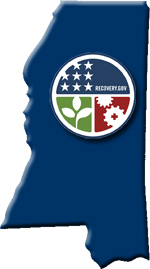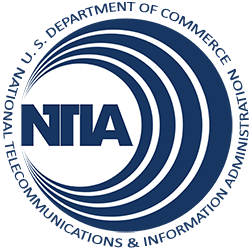Broadband’s ability to expand educational and employment opportunities is especially meaningful for Americans who are deaf or hard of hearing, a community that faces unique challenges in education and that suffers from a rate of unemployment much higher than the national average. Communication Service for the Deaf, Inc. (CSD) intends to expand broadband adoption among people who are deaf and hard of hearing and provide them with online tools to more fully participate in the digital economy. The project proposes to employ a combination of discounted broadband service and specialized computers, technology training from an online state-of-the art support center customized to the community’s needs, public access to videophones at anchor institutions from coast to coast, and a nationwide outreach initiative. Thousands will gain online access to all the Internet has to offer, including sign language interpreters, captioned video services, and other content and functionalities designed especially to advance their educational, employment, and healthcare interests.
Mississippi

| Grantee | Total Award | Type |
|---|---|---|
| Communication Service for the Deaf, Inc. | $14,988,657 | Sustainable Adoption |
| Contact Network, Inc. | $20,725,022 | Infrastructure |
| Contact Network, Inc. | $11,584,467 | Infrastructure |
| Executive Office of the State of Mississippi | $70,055,000 | Infrastructure |
| Office of the Governor, State of Mississippi | $7,011,691 | Broadband Data & Development |
| One Community | $18,701,771 | Sustainable Adoption |
| University Corporation for Advanced Internet Development | $62,540,162 | Infrastructure |
Contact Network plans to collaborate with key state agencies, including the Mississippi Department of Transportation and various public safety entities, in a public-private partnership to expand high speed Internet access in underserved areas of 16 counties in southern and central Mississippi. The project proposes to build 635 miles of fiber optic middle mile broadband infrastructure and lease 223 more miles of existing commercial fiber in this economically troubled region to complete a fiber network with the capacity to upgrade as demand increases.
Contact Network proposes deploying a 550-mile broadband middle mile network throughout 12 economically distressed counties in the Mississippi Delta region, where community anchor institutions currently lack the bandwidth necessary to enable distance learning, telemedicine, and enhanced public safety applications. The Mississippi Delta Broadband Infrastructure Project intends to expand and enhance a fiber optic network in the region to enable up to 4 Gbps backhaul service, with 1 Gbps service available to local community anchor institutions. The project also proposes to connect 16 public school districts comprising the Delta Area Association for the Improvement of Schools to facilitate distance learning, video conferencing, and improved school security.
The State of Mississippi’s MESHNet project aims to deploy a 700 MHz interoperable public safety wireless broadband network to every public safety agency in the state. The project will leverage 134 towers with the state’s 700 MHz public safety Land Mobile Radio system, and expects to provide an average of 1 Mbps to user equipment in public safety vehicles moving at speeds up to 55 mph with 95 percent reliability.
The enhanced public safety system proposes to provide first responders and law enforcement officials with live streaming video capabilities, situational awareness during critical events, Computer Aided Dispatching, mapping and field reporting capabilities, and immediate database access to information for tactical response to routine and emergency situations.
Project Components
State Broadband Capacity Building:
These funds will support the creation of the Mississippi Broadband Connect Coalition, a non-profit public-private partnership focused on producing a comprehensive statewide strategic plan for improving digital literacy, increasing access to broadband, and enabling greater adoption of broadband in the state. The coalition will operate under the direction of the state broadband coordinator and will consist of several working groups, divided among key policy areas, to develop solutions to the problems identified by the working group.
Technical Assistance:
In partnership with the Mississippi State University Extension Service, (MSU-ES), the State of Mississippi will conduct a survey targeted to households and businesses in the second and fifth years of the project. MSU-ES will also initiate roundtable meetings across different geographic areas to disseminate the state plan, mapping data, best practices, ideas for collaboration and information on funding sources for local activities. MSU-ES will work in geographic pockets of the state identified by the mapping project as unserved or underserved, including Choctaw tribal lands and socioeconomically distressed regions.
Local Regional Technology Planning Teams:
This funding will support the work of the MSU-ES to organize local/regional planning teams in underserved areas of the state, and also provide the Mississippi Broadband Task Force and Mississippi Broadband Connect Coalition with logistical support to organize planning meetings, provide meeting space, and disseminate material to aid regional/local teams. The regional teams will review and comment on the draft recommendations developed by the state coalition. Finally, the MSU-ES coordinators will help the local teams identify public and private sources to finance their planning programs and identified activities.
Data Collection, Integration, and Validation:
This project was originally funded for broadband planning activities and two years of data collection. In September of 2010, this project was amended to extend data collection activities for an additional three years and to identify and implement best practices.
The Connect Your Community (CYC) project intends to use an innovative and collaborative strategy to expand broadband adoption by almost 20,000 households in targeted communities in five states. Expanding on successful existing Cleveland-area programs, OneCommunity plans to work with non-profit and community organizations to implement neighbor-to-neighbor broadband adoption and awareness campaigns reaching 334,000 low-income individuals and to provide training and services to 33,000 people in Akron, Cleveland, and Zanesville, Ohio; Detroit, Michigan; Gulfport/Biloxi, Mississippi; Lexington, Kentucky; and Bradenton, Florida. Grant funds will enable project partners, including Urban League centers, libraries, schools, economic development agencies, and human service and housing organizations, to host computer classes and utilize online resources to fulfill their missions. The project plans to employ survey techniques to measure broadband adoption among program participants and track the program’s success over time.
As part of a longstanding project to connect essential community anchor institutions across the country, and facilitate closer collaboration and long-term benefits for education, research, healthcare, public safety, and government services, the University Corporation for Advanced Internet Development (UCAID) proposes a comprehensive 50-state network benefitting approximately 121,000 community anchors. The project proposes a large-scale, public-private partnership to interconnect more than 30 existing research and education networks, creating a dedicated 100-200 Gbps nationwide fiber backbone with 3.2 terabits per second (TBps) total capacity that would enable advanced networking features such as IPv6 and video multicasting. The project plans to connect community anchors across all disciplines into virtual communities with shared goals and objectives, including colleges, universities, libraries, major veterans and other health care facilities, and public safety entities, with additional benefits to tribes, vulnerable populations, and government entities.
